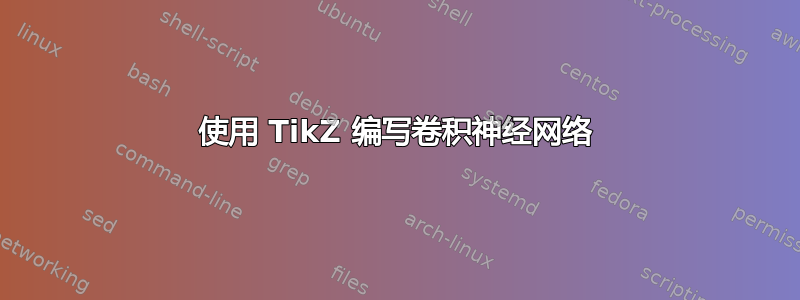
答案1
这是为了给您一个开始(而不是尝试完全重现全屏截图)。此答案带有一种样式3d matrix,可让您相当方便地生成这些块,您只需填写条目即可。请确保为每个矩阵赋予不同的名称,否则一个矩阵可能会从另一个矩阵继承块大小。(您还需要运行代码两次。)我还展示了如何在矩阵和特定元素之间绘制箭头。
\documentclass[tikz,border=3mm]{standalone}
\usepackage{eqparbox}
\usetikzlibrary{matrix,positioning,arrows.meta,bending}
\newbox\matrixcellbox
\tikzset{math center align per column/.style={nodes={execute at begin
node={\setbox\matrixcellbox=\hbox\bgroup$},
execute at end
node={$\egroup\eqmakebox[\tikzmatrixname\the\pgfmatrixcurrentcolumn][c]{\copy\matrixcellbox}}}},
math center align per matrix/.style={nodes={execute at begin
node={\setbox\matrixcellbox=\hbox\bgroup$},
execute at end
node={$\egroup\eqmakebox[\tikzmatrixname][c]{\copy\matrixcellbox}}}},
3d matrix/.style={matrix of nodes,nodes in empty cells,math center align per
matrix,nodes={draw,anchor=center,outer sep=0pt,inner sep=1pt,
text height={height("\raisebox{0.2ex}{A}")},text depth={depth("g")}},
column sep=-\pgflinewidth,row sep=-\pgflinewidth,execute at end matrix={
\foreach \XX in {1,...,\the\pgfmatrixcurrentcolumn}
{\draw (\tikzmatrixname-1-\XX.north east) -- ++ (#1,#1);}
\ifnum\the\pgfmatrixcurrentrow>1
\foreach \XX in {1,...,\the\numexpr\the\pgfmatrixcurrentrow-1}
{\draw (\tikzmatrixname-\XX-\the\pgfmatrixcurrentcolumn.south east) -- ++ (#1,#1);}
\fi
\draw (\tikzmatrixname-1-1.north west) -- ++ (#1,#1) --
([xshift=1ex,yshift=1ex]\tikzmatrixname-1-\the\pgfmatrixcurrentcolumn.north east) --
([xshift=1ex,yshift=1ex]\tikzmatrixname-\the\pgfmatrixcurrentrow-\the\pgfmatrixcurrentcolumn.south east) --
(\tikzmatrixname-\the\pgfmatrixcurrentrow-\the\pgfmatrixcurrentcolumn.south east);
}},3d matrix/.default=1ex,
Rightarrow/.style={double,double
distance=#1,>={Implies[bend]},shorten <=0.4ex},Rightarrow/.default=1ex}
\begin{document}
\begin{tikzpicture}[node distance=4em]
\node[3d matrix] (mat1){
0 & 0 & 1 & 1 & 0 & 0 & -1 & -1 & 0 & 0 \\
};
\node[3d matrix,above=of mat1] (mat2){
0 & 0 & 1 & 1 & 0 & 0 & -1 & -1 & 0 & 0\\
0 & 0 & -1 & -1 & 0 & 0 & 1 & 1 & 0 & 0\\
};
\node[3d matrix,above=of mat2] (mat3){
0 & 1 & 0 & -1 & 0 \\
0 & -1 & 0 & 1 & 0 \\
};
\node[3d matrix,above=of mat3] (mat4){ 0 & -4 & 0 \\};
\node[3d matrix,above=of mat4] (mat5){ 4 & -4 \\};
\node[3d matrix,above=of mat5] (mat6){ 0.99 & 0.01 \\};
\draw[-{Latex[bend]}] (mat1.east) to[out=0,in=0]
coordinate[near end](aux1) ([xshift=1ex]mat2-1-10.east);
\path (aux1) node[right,above right,3d matrix]{-1 & 0 & 1\\};
\draw[-{Latex[bend]}] (mat1.east) to[out=0,in=0] ([xshift=1ex]mat2-2-10.east);
\draw[Rightarrow,->] (mat1) -- coordinate[midway,right=2em] (aux2) (mat2);
\path (aux2) node[right,3d matrix] (mat1a){1 & 0 & -1 \\};
\draw[Rightarrow,->] (mat2) -- (mat3);
\draw[Rightarrow,->] (mat3) -- (mat4)
coordinate[midway,right=1em] (aux3);
\path (aux3) node[right,3d matrix] (mat3a){-1 & 0 & 1 \\
1 & 0 & -1\\};
\foreach \X in {1,2,3} {\foreach \Y in {1,2}
{\draw[-latex] (mat4-1-\X) -- (mat5-1-\Y);}}
\draw[Rightarrow,->] (mat5) -- (mat6);
\end{tikzpicture}
\end{document}
有一些问题当尝试在路径构造中添加矩阵时。因此,我沿路径添加了坐标,并使用这些坐标来放置矩阵。




